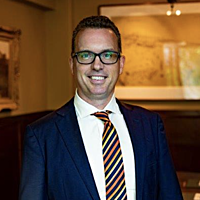Reviewing Annie Duke’s thinking in bets
A prerequisite to good investing involves understanding the game you are playing. Unsurprisingly, a major component of successful investing revolves around how to analyse a company. But equally important is the psychological wiring of the investor.
In many respects, the share market is one of the great tests of one’s psychology and their predisposition to the many behavioural biases that impact decision-making. In search of making better (life) decisions (and hopefully, better investment decisions), I recently read Annie Duke’s “Thinking in Bets”.
A psychologist by training, Duke reflects on getting comfortable with uncertainty and provides mechanisms for making better decisions as a result. She weaves these lessons while taking the reader through her journey from being a poker novice to becoming a World Series of Poker champion.
In this piece, I discuss how investing is in many respects more akin to poker than chess. I also cover why we should focus on the process and not the outcome. In next month’s article, I will continue the journey into decision-making and share tips directed at enhancing our decision-making processes.
Life is poker, not chess
You may be wondering why Duke’s journey through poker tournaments is remotely relevant to investing. There is of course, the obvious point that some investors (or more appropriately, speculators) treat the share market like a casino. Leaving that parallel to one side, there is a deeper connection between poker and investing. The notion behind the book and its titling, “Thinking in bets”, is that our lives are determined by two factors:
- The quality of our decisions
- Luck.
Poker shares a similarity to life in this respect, both luck and the quality of decision-making influence a player’s success. This contrasts with the game of chess, where 99 times out of 100 the more skilled (not the luckier) player will win. Per Duke,
Chess, for all its strategic complexity, isn’t a great model for decision-making in life, where most of our decisions involve hidden info and a much greater influence of luck. Poker, in contrast, is a game of incomplete information. It is a game of decision making under conditions of uncertainty over time. There is also an element of luck in any outcome.
Poker and investing are similar in how luck can influence the outcome. Investing is one of the few disciplines where an amateur can beat a professional, purely by getting lucky on the stock they choose to invest in. One could conceivably plot activities on a continuum of “luck” and “skill”. On the one side, pursuits like basketball and chess would sit closer to the “skill” end of the continuum. I can’t envision myself defeating Lebron James in basketball, irrespective of how lucky I may be on the day. On the other extreme, games like roulette would sit on the “luck” end of the continuum. To know how much of a factor luck has on a game’s outcome, academic, Michael Mauboussin suggests thinking about whether you can lose the game on purpose. Those instances where you can, point to the greater influence of skill.
Focus on the process, not the outcome
Importantly, while we cannot influence the role of luck, we can enhance the quality of our decision-making. Pitting the professional investor against the amateur, in answering who will outperform in the long run, my money is on the one with the better decision-making process
Duke points out that it is unwise to draw an overly tight relationship between results and decision quality. More specifically, we are better served focusing on the decision (and more importantly, the decision-making process) not the result because the influence of luck on outcomes. Hindsight bias – the tendency, after an outcome is known to see the outcome as being inevitable – is relevant here and points to some of the dangers of focusing on outcomes and not the process. Per Duke,
“outcomes don’t tell us what’s our fault and what isn’t, what we should take credit for and what we shouldn’t. Unlike in chess, we can’t simply work backward from the quality of the outcome to determine the quality of our beliefs or decisions”.
It is human nature to be uncomfortable with the idea that luck plays an outsized role in our lives. However, the sooner we become conscious of the role of luck, the sooner we can take steps to make better decisions.
In next month’s wire, I will unpack practical steps on improving our decision-making processes.
Never miss an insight
If you're not an existing Livewire subscriber you can sign up to get free access to investment ideas and strategies from Australia's leading investors.
And you can follow my profile to stay up to date with other wires as they're published – don't forget to give them a “like”.

